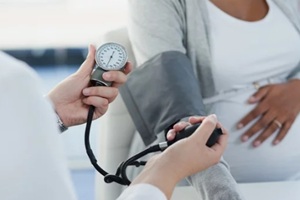 Hypertension (high blood pressure) is a common health condition that affects a significant portion of the global population. It develops when the force of blood pushing against artery walls is constantly too elevated, causing potential damage over time.
Hypertension (high blood pressure) is a common health condition that affects a significant portion of the global population. It develops when the force of blood pushing against artery walls is constantly too elevated, causing potential damage over time.
While hypertension can’t be cured, it can often be managed through medications and lifestyle changes. However, some people wonder if making certain adjustments can actually reverse hypertension.
This article explores whether reversal is possible and how you may be able to achieve it.
Understanding Reversal
When doctors talk about managing hypertension, they usually categorize it into different stages based on the severity of your blood pressure readings. These include:
- Normal: Below 120 / 80 mm Hg
- Elevated: 120 to 129 / Under 80 mm Hg
- Stage 1 Hypertension: 130 to 139 / 80 to 89 mm Hg
- Stage 2 Hypertension: Equal to or above 140/90 mm Hg
Reversing high blood pressure means improving your levels until you’re no longer in the hypertension category. For example, lowering blood pressure from Stage 2 to Stage 1 would be considered a reversal.
Dropping from Stage 1 to elevated or elevated to normal readings would also constitute reversal. Reversal is more difficult from higher starting points than it is from lower. But it’s not necessarily impossible with certain healthy changes.
Lifestyle Changes for Reversal
One of the best ways to target reversal is through lifestyle therapies. Tweaking your daily habits can affect factors that contribute to high blood pressure development such as obesity, eating too much sodium, and not exercising enough.
Making lifestyle changes may help reverse hypertension on its own or enhance other treatments you may be trying.
Some top ways include:
Watch Your Weight
Being overweight (and especially living with obesity) significantly raises risks for hypertension. Dropping even 10 pounds can notably reduce elevated pressure in many people who are overweight.
Aim to slowly drop excess pounds through daily calorie limits, more activity, and eating more fruits, veggies, and whole grains while limiting sweets.
Up Your Physical Activity
 Increasing cardio exercise not only assists with easier weight loss but may also act as blood pressure medication, according to doctors. As little as half an hour a day can significantly reduce hypertension readings over time.
Increasing cardio exercise not only assists with easier weight loss but may also act as blood pressure medication, according to doctors. As little as half an hour a day can significantly reduce hypertension readings over time.
Get moving more consistently through activities you enjoy such as fast walking, biking, swimming laps, aerobics classes, or jogging. Strength training for muscle building also helps lower blood pressure.
Limit Sodium Intake
Consuming excess sodium leads to fluid retention and your vessels tightening, which may raise hypertension risk significantly. Cutting added salt alone without other diet changes may drop your blood pressure readings.
Follow DASH Diet Guidelines
The DASH diet stands for Dietary Approaches to Stop Hypertension and provides guidelines for reversing and preventing high blood pressure through healthy food choices. It emphasizes produce, nuts, beans, whole grains, lean proteins, and nonfat dairy. It also limits sugar, alcohol, and sodium substantially.
Limit Alcohol Intake
Consuming more than moderate amounts of alcohol frequently not only fuels weight gain but may directly stress vessels and spike hypertension. Men should stick to two or fewer drinks daily max, while women should have a one-drink daily limit.
Manage Stress Actively
Letting too much stress pile up fuels surges of hormones such as cortisol and adrenaline, which constrict blood vessels, quicken heart rates, and can lead to dangerous blood pressure spikes. Over long periods, stress may directly contribute to hypertension development.
Quit Smoking Entirely
 Smoking constricts blood vessels while destroying their elasticity and inner linings rapidly. On top of cancer risks, lighting up ramps up pressures and makes medications less effective. Kicking the habit for good is one of the best actions you can take to lower blood pressure into healthier zones.
Smoking constricts blood vessels while destroying their elasticity and inner linings rapidly. On top of cancer risks, lighting up ramps up pressures and makes medications less effective. Kicking the habit for good is one of the best actions you can take to lower blood pressure into healthier zones.
Consider Prescription Medications, Too
Reversing hypertension through lifestyle therapy alone works wonderfully for some people. However, others require prescription medications to reach a healthy pressure level even when living a low-risk lifestyle.
Assessing Your Progress
When making intensive lifestyle changes and following any medication regimen for high blood pressure, it’s essential to track your progress consistently through at-home and doctor-office blood pressure checks. These assessments allow you to see what’s working well and to adjust as needed.
Here’s what to look out for:
Improving Category Levels
Ideally, your systolic reading (the top number) reverses into at least one lower hypertension category, depending on your starting point. Dropping blood pressure severity grade signifies excellent reversal progress.
Bottom Number Declining
Getting your diastolic pressure, the bottom reading, to lower shows lifestyle changes are relaxing and opening up blood vessels well for easier flow rather than just addressing heart pumping strength.
Readings Fall Most Mornings
Home monitoring lets you assess if your average weekly hypertension readings show you’re maintaining lower pressures through daily diligence, not just on appointment days when your reading may temporarily be ideal.
Medications Side Effects Lessen
If you develop side effects such as fatigue from blood pressure medications, discuss options with your doctor, as reversing hypertension through lifestyle factors successfully may mean you can lower pharmaceutical dosages.
Consistency Is Essential for the Long Term
As with any chronic condition, hypertension requires constant management. Expect some blood pressure fluctuations periodically, even when reversal is successful. Don’t get discouraged by variability if your general trend is headed the right way. Maintaining mostly normal readings long-term signifies you’ve reversed previous hypertension.
Partner with Imperial Center Family Medicine for Hypertension Support
 Controlling and reversing hypertension where possible takes commitment to daily lifestyle therapy, open conversations with physicians, and patience during the process. But taking charge of your health leads to big rewards, such as avoiding medications or lowering dosage needs.
Controlling and reversing hypertension where possible takes commitment to daily lifestyle therapy, open conversations with physicians, and patience during the process. But taking charge of your health leads to big rewards, such as avoiding medications or lowering dosage needs.
If you need guidance while beginning your journey to reverse high blood pressure, Imperial Center Family Medicine can help. Our team has worked with countless patients to create personalized treatment plans for hypertension, combining the latest medical knowledge with each patient’s unique needs and goals.
Contact us today at 919-873-4437 or book a consult online, and let’s get started on developing a plan to manage your hypertension effectively.
